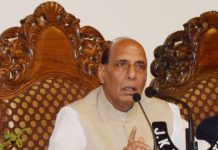
Whatever he may claim, N Srinivasan, the former president of the Board of Control for Cricket in India (BCCI) and current chairman of the International Cricket Council (ICC), is still inherently connected with Chennai Super Kings (CSK). Hence, he has not adhered to the letter and spirit of the past Supreme Court (SC) order. The judgment stated that to avoid any conflict of interest, he had to give up CSK’s ownership if he wished to be a part of the BCCI administration.
Over the past few weeks, fresh controversies erupted on the issues related to Srinivasan and CSK. First, the BCCI asked the apex court to rule if the former BCCI head could attend the Board’s meetings and stand for its elections. Then, Srinivasan filed a perjury case against Anurag Thakur, BCCI secretary. Finally, the SC ruled that its previous order on conflict of interest was quite specific, and the BCCI should take its own call on it and not approach the court for clarifications on whether Srinivasan still had any ownership links with CSK.
The fact is that CSK, which was suspended for two years, was one of the eight franchisees in the Indian Premier League (IPL), which is owned, run and managed by the BCCI. Obviously, a cricket administrator cannot and should not own an IPL team. Thus, the SC said that Srinivasan should remain at arm’s length from CSK if he wished to hold a key post in the BCCI. In fact, the court added that no one who has commercial cricket interests shall be eligible for any BCCI posts.
In its January 2015 order, the apex court said, “No one who has any commercial interest including N Srinivasan shall be eligible for any post in the BCCI and this disqualification on ground of commercial interest shall continue till such commercial interest exists.” It added, “Amendment in the BCCI rules allowing Srinivasan to own IPL team is bad as conflict of interest leads to great confusion.” A few years ago, the BCCI had allowed administrators to have commercial interests in IPL.
As of now, Srinivasan and his family still have strong links with CSK. Experts contend that he hopes to wriggle out of the SC ban through complex corporate manoeuvres, which are extremely technical in nature. What the former BCCI head plans to do is to create a complex ownership structure, which may technically distance him from the IPL franchise but allow him to influence its decisions. He still is apprehensive to let CSK go out of his business empire. Therein lies the crux of the matter.
It’s also about India Cements
What most people don’t realise is that when the SC barred Srinivasan from the BCCI, the former insisted that even India Cements, which is promoted by Srinivasan and his family, shouldn’t have any connections with the IPL franchise. The apex court ruled that Srinivasan can’t take the plea that India Cements, a listed company that owns CSK, was owned by thousands of shareholders and not by him and his family. There was no distinction between Srinivasan and India Cements.
The SC felt that being the main promoter of India Cements and with a substantial stake held by him and his family Srinivasan practically owned CSK, which was then a division of the company. Most of the decisions were taken by the board of directors, except a few crucial ones for which shareholders’ assent was required. The board itself was influenced by Srinivasan and other directors, who were family members. Thus, there was an inherent conflict of interest.
Such an observation implied that India Cements had to delink itself from CSK. This hasn’t happened till now. As of now, the CSK franchise is owned by a new company, Chennai Super Kings Cricket Ltd (CSKCL), which became a 100 percent subsidiary of India Cements. The 50,000 shares owned by India Cements in CSKCL were transferred to a trust, India Cements Shareholders Trust (ICST). However, as can be assumed by the name of the trust, it is still related to India Cements.
In addition, as revealed by India Cements’ mandatory disclosures, Srinivasan still calls the shots at ICST. In its advertisement to declare quarterly results (ended June 2015), India Cements admitted that three of the independent directors of the company are the trustees of the trust (ICST). Clearly, members of India Cements’ board legally control ICST. Hence, Srinivasan, the promoter of India Cements and head of its board, hasn’t severed his links with CSK.
It is because of such complexities that the BCCI approached the SC to get clarity on Srinivasan’s links with CSK. The BCCI told the court that its former head was still linked with CSK because his name appeared as one of the trustees of ICST. Thakur, in whose name the petition was filed, had to retract this when he found that the N Srinivasan, named as the trustee, was a chartered accountant and a different person from N Srinivasan, the promoter of India Cements.
A miffed Srinivasan filed a perjury sportcase against Thakur, who has battled the former BCCI head for several years. The current BCCI secretary had hinted that the BCCI will not allow Srinivasan to continue as the ICC chairman for a second one-year term. Only when Shashank Manohar recently became the new BCCI president for the second time that he urged Srinivasan to withdraw his case against Thakur. Manohar has criticised Srinivasan in the past two years.













